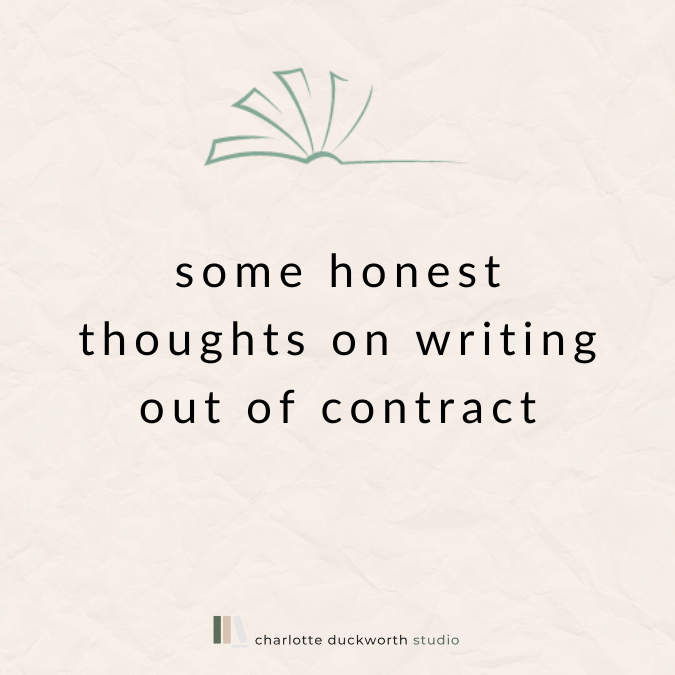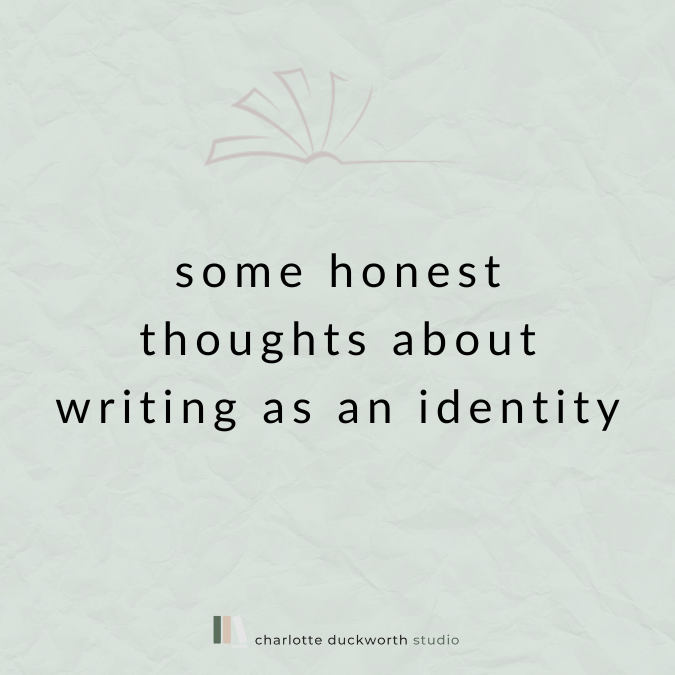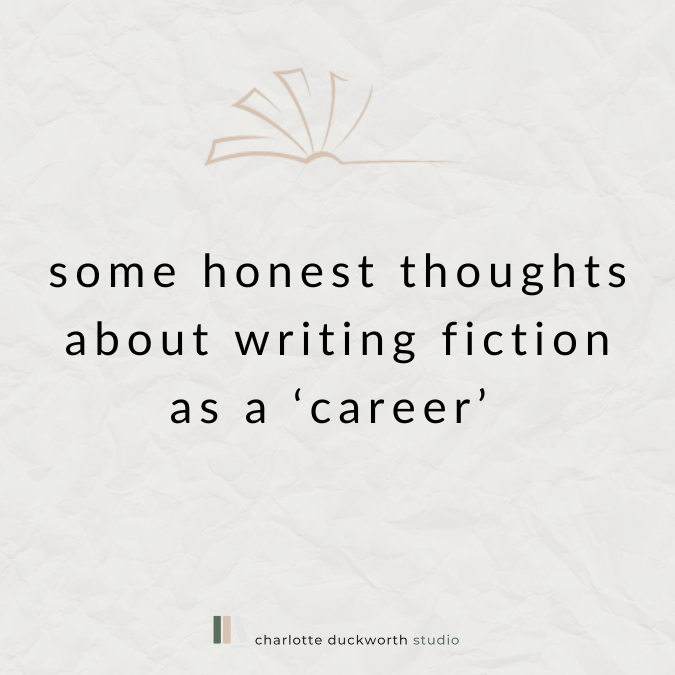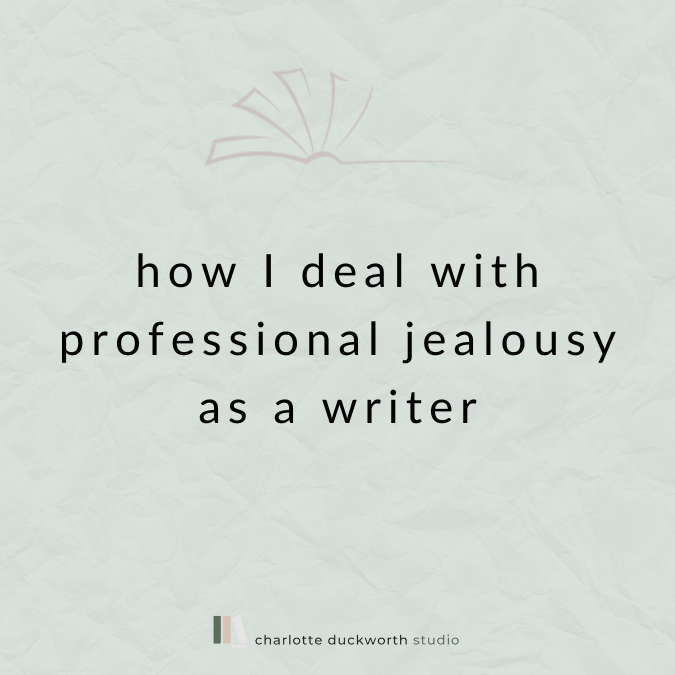How to overcome tech phobia and build your own author website
This post is one that’s very close to my heart. I speak to SO many authors who say ‘I hate technology’ or ‘I just find it all so confusing’ or ‘I have no idea who to build a website - I’m a writer!’ and I’d just like to begin this post by saying that I totally get it.
If you’re not familiar with this stuff, it can seem completely overwhelming.
There is SO much information out there and wading through it all takes time and effort that I know you’d rather be spending writing your next book.
And so, many authors just avoid the whole thing, and then they beat themselves up about it: ‘I know I should have an author website but I just can’t wrap my head around it and I can’t afford to pay someone to build one for me’ and it becomes another disappointment.
It doesn’t have to be this way! I promise.
I know it’s a bit cheesy, but honestly, my mission is to empower authors so that they can take control of their digital presence and the picture they put out to the world about themselves and their work.
As an author, I’ve always found that the thing I find the hardest about my job is that I don’t feel as in control of my career as I would like to be.
The truth is, the only thing we can control is our writing and the marketing we do to support it.
Feeling in control of your website can make a real difference to your mindset.
In this post I’m going to be sharing my top tips on overcoming the phobia of technology, so that you feel in control of how your work is presented to the world online.
I promise you can do it!
Start with a positive mindset
Easy to say, maybe trickier to master but one of the first steps in overcoming tech phobia is to approach it with a positive mindset.
You are a writer, you have written a book. When you first sat down and started writing, you didn’t know what you were doing, but you persisted anyway.
This makes you a badass and PROVES to me that you can master a long-term project.
It's normal to feel apprehensive about technology, but remember that building a website is a learnable skill, and there is a ton of help out there to guide you.
Embrace the challenge as an opportunity for personal and professional growth. Celebrate your progress but most importantly don't be too hard on yourself if things don't go perfectly from the start.
It’s like that writing mantra you may be familiar with: don’t get it right, get it written.
Same with your website. Start with baby steps, and know that you can always make improvements in the ‘edit’ (more on this later!).
Educate yourself
One of my favourite cliches is: ‘knowledge is power’, and the more you learn about website creation, the less intimidating it becomes.
Take advantage of online tutorials, courses, and guides that break down the process step by step.
The reason I am SUCH a fan of Squarespace is that you don’t need to be a tech genius. You don't need to code anything. The platform is designed with DIYers in mind.
There are also a wealth of tutorials and support available to help you navigate the setup and creation process.
They have an amazing video library and they also offer 1-2-1 support with their amazing expert help team that you can access for free.
Set clear goals
Before you start building your author website, define your goals.
Don’t get too carried away trying to build something all-singing and all-dancing right from the beginning.
Keep your goals minimal to start with. Just the bare essentials will do!
Creating a simple, clean, one-page website with your book cover, links to buy, an author headshot and bio, and contact details is all you need, and won’t take you a month to build.
Break it down
The idea of building an entire website in one go can be overwhelming.
To make the process more manageable, set aside a period of time to focus on the website and break it down into smaller tasks.
Below, I’ve set out a list of things you’re going to need to do to build an author website from scratch. Why not tackle one task per day?
1 Choose a domain name
(I recommend using your author name - nothing too complicated or obscure!)
2 Choose a website platform
Obviously I am a fan of Squarespace, but you can also take a look at Wix or Weebly. There are lots of helpful reviews out there so take some time to compare the platforms and choose the right one for you
3 Prepare all your content
Get this ready ‘offline’, so source and resize any images you want to use on the site, then write out all the text - making sure you have someone else check it over for spelling and grammar (these kinds of mistakes on any websites are not a good look, but are especially bad on authors’ websites!)
4 Choose your colours and fonts
Your book cover is your biggest marketing asset, so make sure that the fonts and colours you choose for your author website don’t fight with its design. If you’re nervous at all, then pick a neutral scheme that doesn’t draw attention to itself - even monochrome can look classy
5 Get to grips with the website builder and start uploading your content
This is the bit everyone is afraid of, so take some time to watch tutorials and make use of the online resources and help guides before you start to upload your content. Remember Google and YouTube are your friend! If there’s an issue you’ve come across, then chances are someone else has too, and hopefully they have shared a fix
6 Check everything’s working properly
This is so important! We want to make sure all the links work, newsletter subscribers are added to our mailing list when they sign up, contact forms come through and everything goes where we expected it to. Once that’s done, it’s time to upgrade and publish your site!
7 Share your hard work with the world 😄
The best bit! Make sure you take some time to pat yourself on the back too!
I know it might seem like I’ve oversimplified things here, but breaking the project down into smaller tasks and taking one step at a time will prevent you from feeling overwhelmed and allow you to focus on each task more effectively.
Seek help and support
Don't be afraid to ask for help when you need it!
Whether it's from a tech-savvy friend, online writing forums, or the customer support of your chosen website builder, there’s absolutely no shame in asking for advice.
I’m a professional website designer and I still regularly seek help from Google when I get stuck!
If you’re a member of the Savvy Author Snug, and post a comment in there, you’ll get a wealth of answers from your fellow authors (including me!)
And of course if you’re using Squarespace for your author website, you can book some time with me!
Take a look at my author website support services →
Practice patience
Building a website takes time, especially if you're new to the process.
Be patient with yourself and recognise that, like when you learn any new process, there are bound to be moments of frustration or setbacks… or times when you feel like you want to throw your computer at the wall.
But instead of giving in to your tech phobia, remind yourself that a) you wrote a book and everything else is easy in comparison and b) these challenges are opportunities to learn and grow and c) you’ll feel bloody great once it’s all finished.
Iterate and improve
The most important thing I want to get across to you is that your author website doesn't have to be perfect from the start.
I know, I know, I’m a perfectionist too. But don’t waste hours and hours of your life choosing fonts and colours and images. The best thing about a website is that honestly, less is more.
It’s fine to stick to one colour and a plain font and keep the design uncomplicated. It’s fine to keep copy to a bare minimum. What’s much more important is clarity and usability.
You just want the basic information on the site so that readers can find out what they need to know.
And of course, as you become more comfortable with using your platform of choice, you can update and refine your website!
Once you’ve mastered the basics, then you can experiment with different layouts, colours, and content to see what resonates best with your audience.
Over time, you'll develop a website that reflects your unique author brand and appeals to your readers.
You might even have fun doing it… honest!
More posts like this:













